This language is currently in review and will be available soon!

On Monday, 4 December 2023, project dldl/ድልድል held the film premiere for its docudrama ‘Tidar‘ (‘Marriage’) in Addis Ababa, Ethiopia. It was planned during the International 16 Days of Activism Against Gender-Based Violence Campaign to create awareness around domestic violence and the role that the Church can play in promoting more effective responses.
The film screening took place at Vadmas Cinema with over 80 guests from third sector organisations working on women’s issues, Ethiopian Orthodox and other faith-based organisations and clergy, embassy staff, educators, and members of Ethiopia’s filmmaking community.
Tidar (‘Marriage’) is a docudrama, or a dramatized documentary, about an Ethiopian Orthodox Christian woman named Genet who lives in the countryside of Ethiopia and is faced with domestic violence in her marriage. The film depicts Genet seeking a solution to her situation in the local community that can result both in ending the abuse she faces and keeping her marriage in line with her valued religious worldview.
Genet’s story is a collation of real stories collected by Dr Romina Istratii during long-term anthropological and participatory research in northern Ethiopia during 2016-2017. These stories and testimonials were subsequently synthesised by Dr Istratii into a single film script and were re-enacted by Amharic-speaking actors in Ethiopia, with subtitles being produced in Tigrigna, Afaan Oromoo and English by first language speakers.
The film seeks to evidence the real life experiences of women like Genet who are affected by domestic violence and whose rationalisations of their experiences and help-seeking decisions are often influenced by their faith and their understanding of religious teachings. It portrays both helpful and unhelpful ways in which grassroots clergy can respond to women in Genet’s situation to raise awareness about training needs in the Church.
The film also incorporates theological teachings that respond to distorted or incomplete understandings around marriage and the conjugal relationship based on the work of highly venerated Church Fathers in the Ethiopian Orthodox Tewahedo Church (EOTC), including marriage teachings by ቅዱስ ዮሐንስ አፈወርቅ (St John Chrysostom). These teachings are the result of Dr Istratii’s many years of specialised work compiling Orthodox responses to domestic violence, translating and making these responses more accessible to Ethiopian audiences in collaboration with EOTC theologians, and developing training materials and herself training EOTC clergy in collaboration with EOTC DICAC, the Church’s development wing that responds to societal issues in the country.
The film was produced through a collaborative model between Dr Istratii and two production companies. Ethiopia-born Hermon Hailay and Max Conil at the UK-based production company Exile Pictures oversaw the full production process, while Yidnekachew Shumete Desalegn, co-founder of the Ethiopia-based production company Kurat Pictures, directed the film on the ground working with an all-Ethiopian crew. Its production was funded by UK Research and Innovation (UKRI) under Dr Istratii’s Future Leaders Fellowship grant ‘Bridging religious studies, gender & development and public health to address domestic violence” (Grant Ref: MR/T043350/1).
The film premiere took place in a tone of celebration and relief following the production team’s myriad challenges to materialise its making, including a political unrest in the country and a global pandemic.
As guests arrived to the venue, coffee, pop corn and traditional Ethiopian bread were served to create an ambiance of connection and celebration.
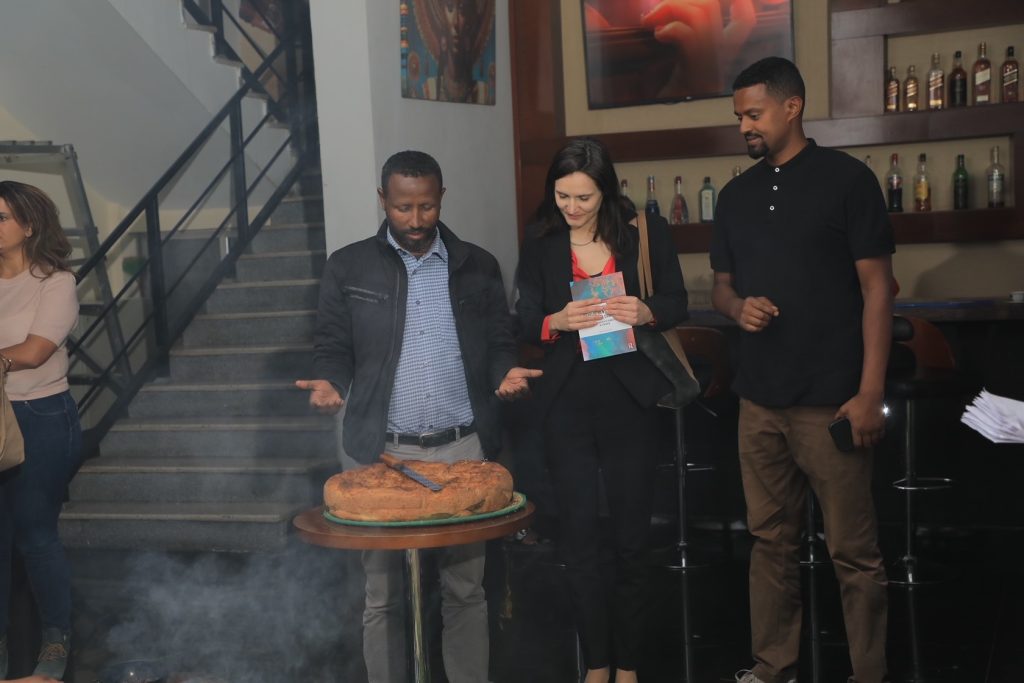
The screening of the film proceeded with a full audience room, followed by a Q&A session with the audience.
In recognition of the difficult and solemn topic of domestic violence, production assistant Kedest Firdaweke carefully introduced the film after the screening and mediated a discussion between Dr Romina Istratii, Yidnekachew Shumete and the audience.
Dr Romina Istratii, as the researcher and scrip writer, and Yidnekachew Shumete, as Director, shared brief introductions and then took turns to respond to technical and content-related questions from the audience.
A lot of discussion proceeded around the film’s motivations, aims and its use of research and theological content.
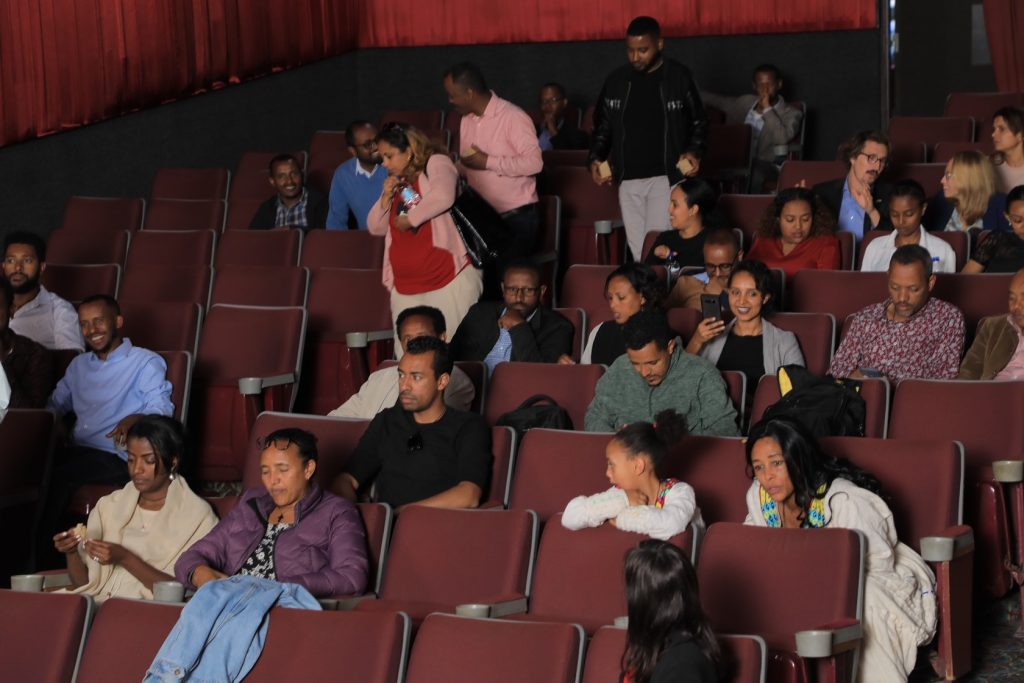

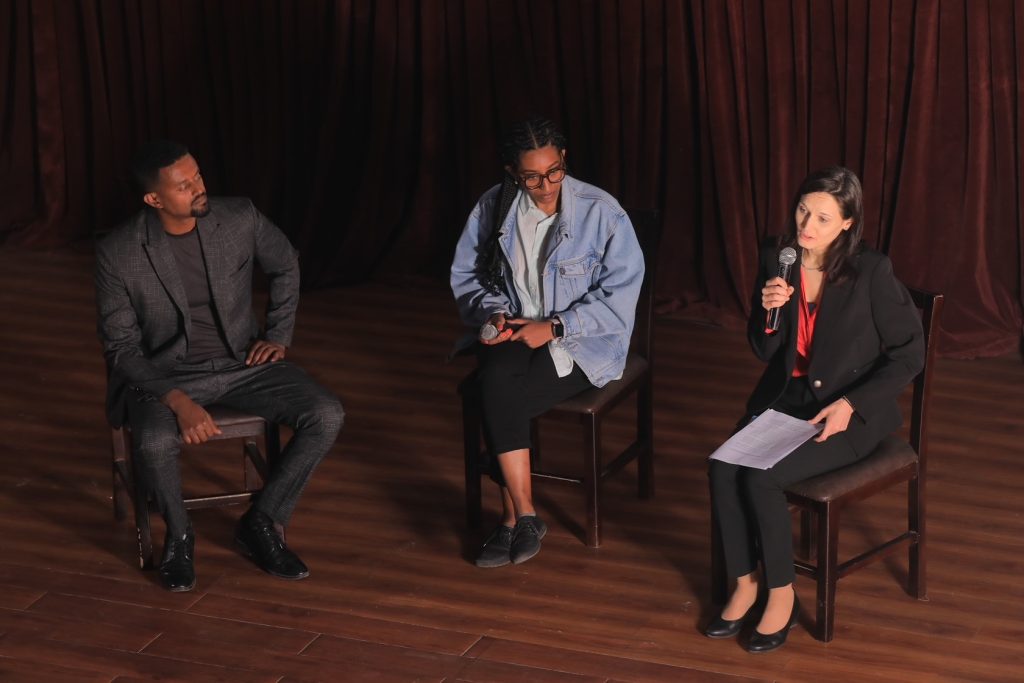
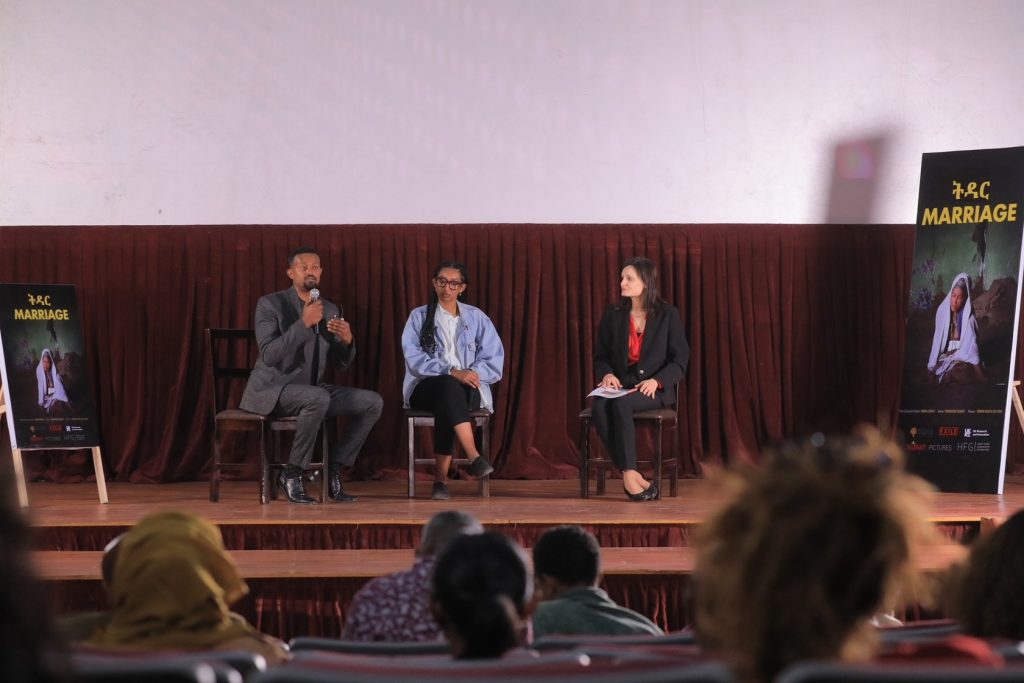

The event ended with more networking and red carpet photos for the production team and the guests.
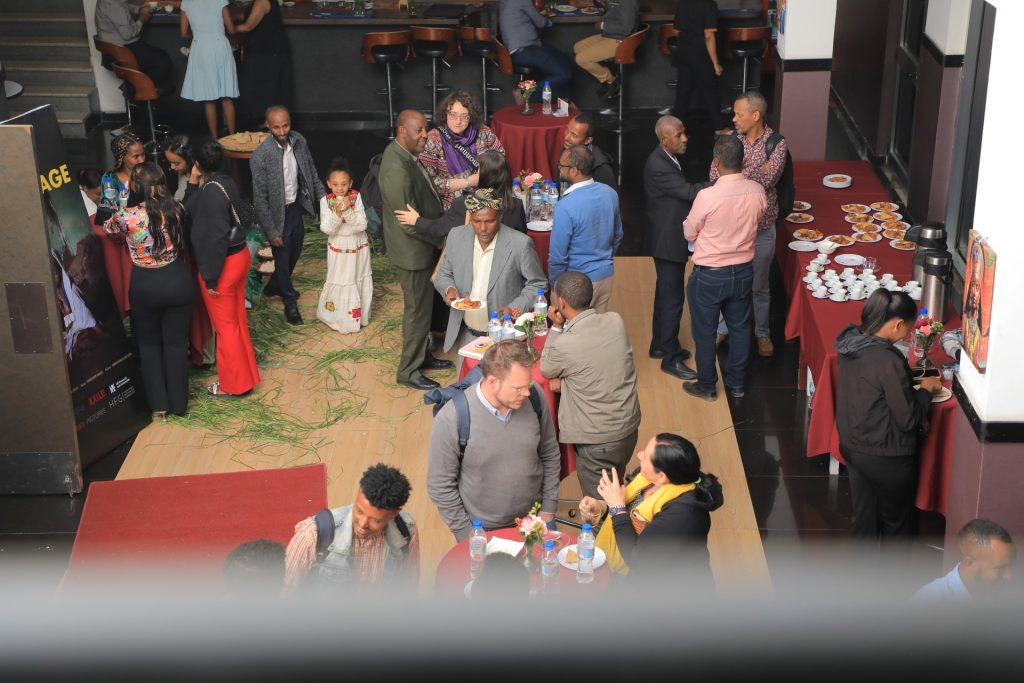
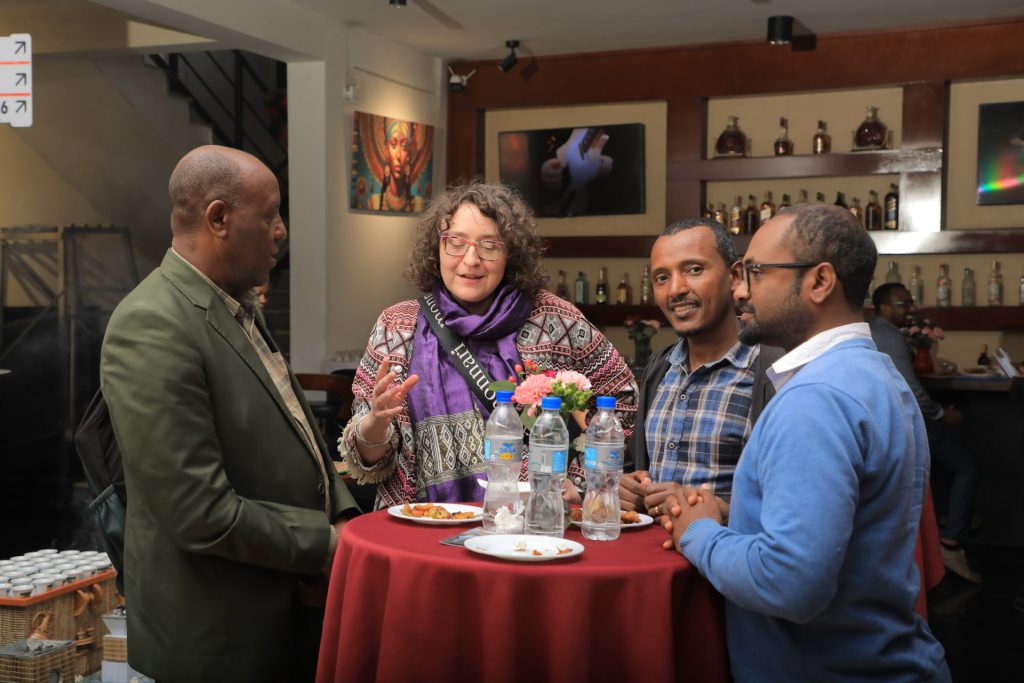
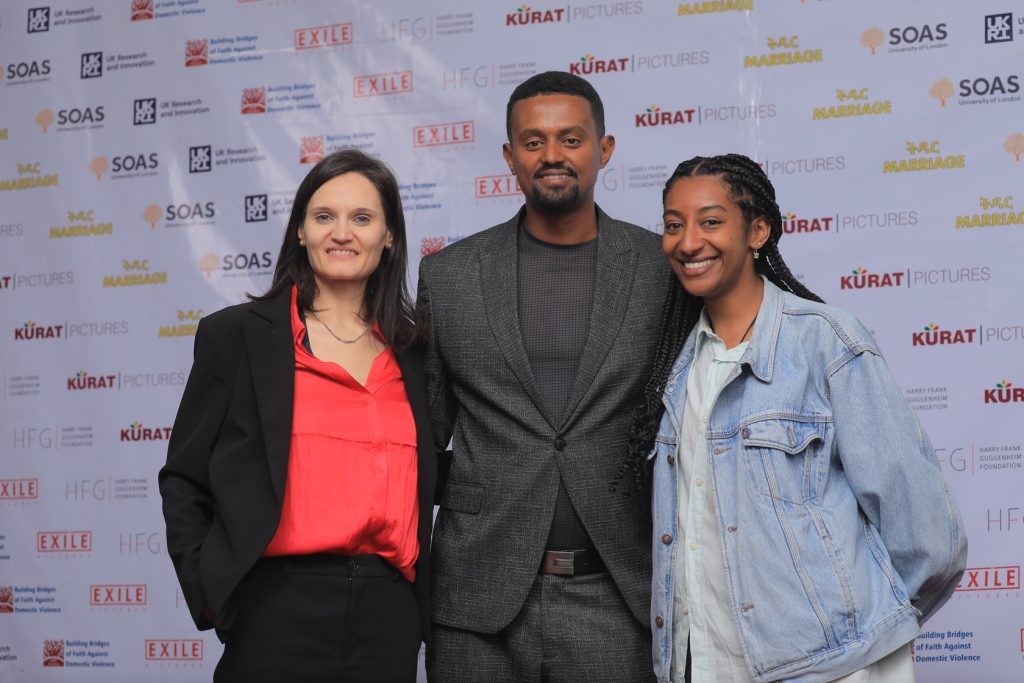
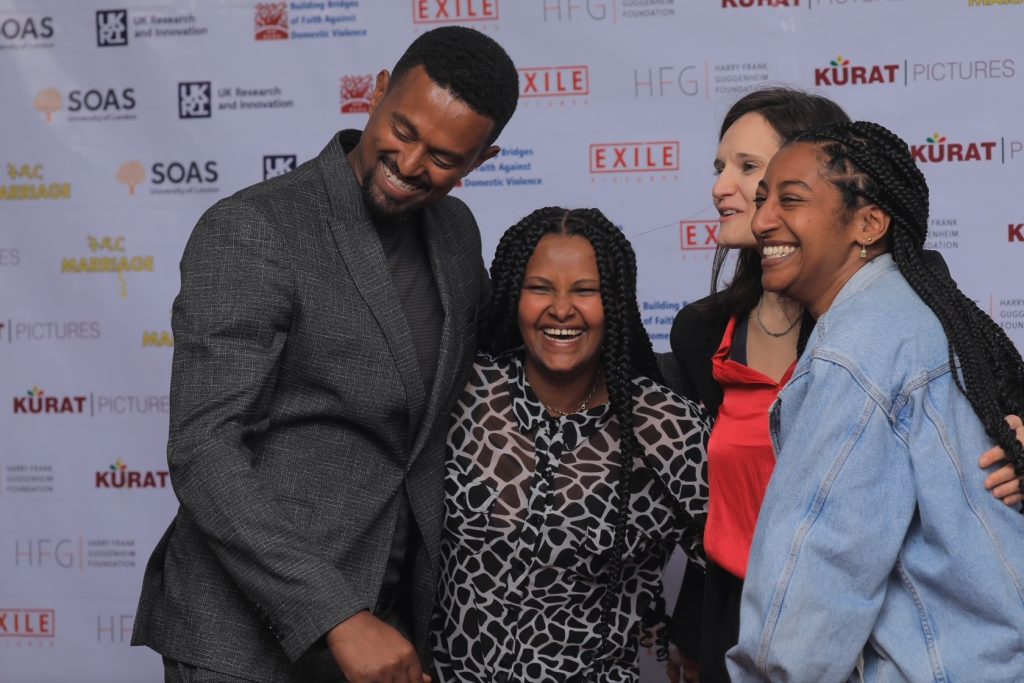
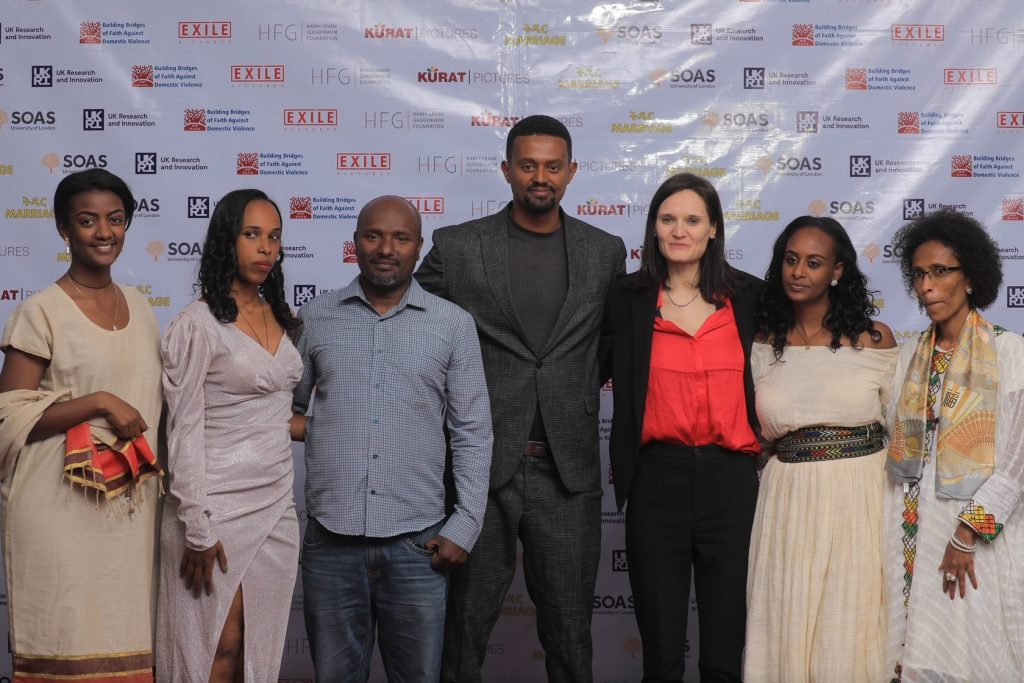

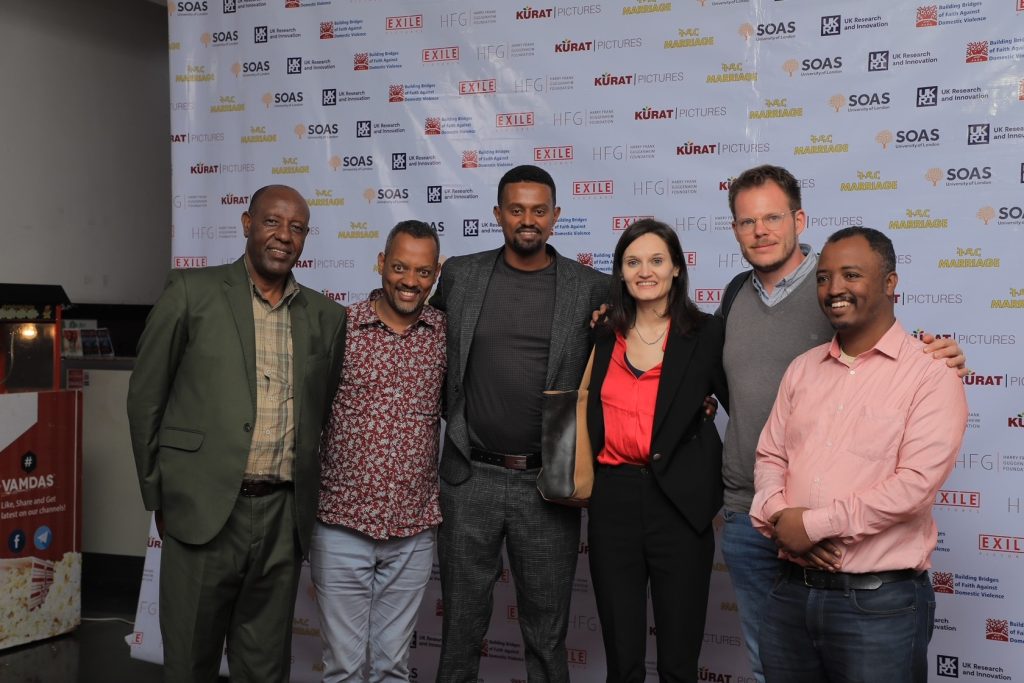
The film is anticipated to be released open access in 2024.
Photos: Courtesy of Project dldl/ድልድል